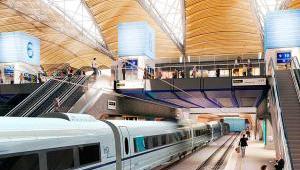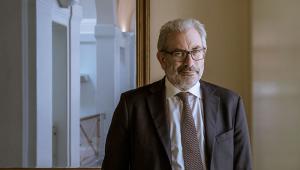He also argued that the government should use the aftermath of the forthcoming EU referendum to address the country’s major constitutional challenges.
Publishing a report from a cross-party group set up to consider the future of the UK’s constitution, Kerslake called for a wider debate on how to better empower local areas and improve governance.
The All-Party Political Group on Reform, Decentralisation and Devolution concluded that a significant shift of power from national to local level is essential as part of a coherent and ambitious approach to devolution. This would need to include much greater fiscal autonomy for local areas to overcome decades of centralisation.
Today’s Devolution and the Union paper warns that greater localism can only succeed if members of the public believe their local areas – not Whitehall – are leading it.
As a result, the reports concludes that there should be no limits put on what might be devolved in England, but agreement on what functions remain at a UK level within a “reserved powers” model, similar to the approach adopted with the Scottish Parliament.
The report identified several areas where additional freedoms would be appropriate. These include new powers where charges are currently set nationally, such as planning fees, as well as releasing councils from the currents caps on Housing Revenue Account borrowing.
Consideration should also be given to devolution of other property taxes, such as stamp duty.
An annual devolution report to Parliament should set out progress on how Whitehall is reforming to support devolution, the group advised, adding that his should be kickstarted after the EU referendum, regardless of the outcome.
Lord Kerslake, who was ennobled after retiring from his role as Department for Communities and Local Government permanent secretary last February, and who also served as head of the civil service until July 2014, chaired the inquiry.
Kerslake said that greater devolution has the potential to deliver a stronger economy, better services and a stronger union within the UK.
“But what we are doing now is piecemeal and incoherent,” he added.
“The time has come for a bigger conversation – one involving all citizens – if we want to reduce the gap between those that govern and those that are governed, and ensure devolution has a strong and lasting legacy whatever the result in June.”
Successful devolution across the whole UK cannot happen without a willingness to embrace “radical and far-reaching change”, he warned.
“While the government has made progress with the devolution agenda, a more coherent and ambitious approach is needed if we are to tackle the constitutional challenge this country faces.”
The APPG on Reform, Decentralisation and Devolution was formed in 2014 to provide cross-party parliamentary space for an open discussion on the need for a UK-wide settlement. The panel comprised parliamentarians and constitutional experts. They were: Lord Kerslake (Crossbench, Chair); Graham Allen MP (Labour); Dame Kate Barker (N/A); Lady Victoria Borwick MP (Conservative); Bishop of Derby (N/A); Baroness Janke (Liberal Democrat); Jason Kitcat (Green); Lord Maclennan (Liberal Democrat); Lord Norton (Conservative); Gavin Robinson MP (DUP); Lord Wigley (Plaid Cymru).
Responding to the publication, Local Government Association chair Lord Porter said the report takes the public debate on devolution forward and provides important guidance to help councils.
“To build desperately-needed homes, create jobs, provide the dignified care for our elderly and boost economic growth, all councils need greater freedom from central government to take decisions over vital services in their area,” he stated.





















